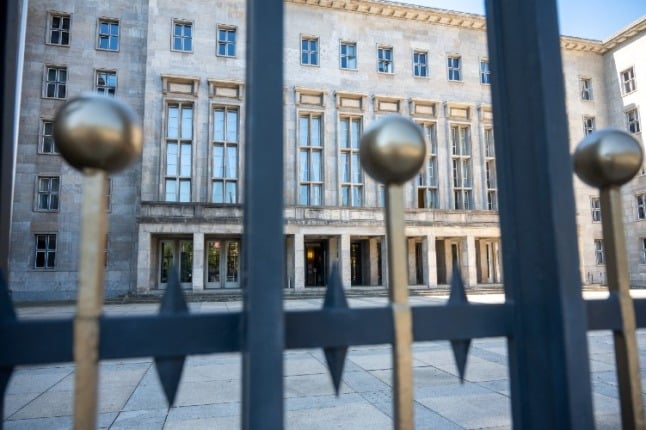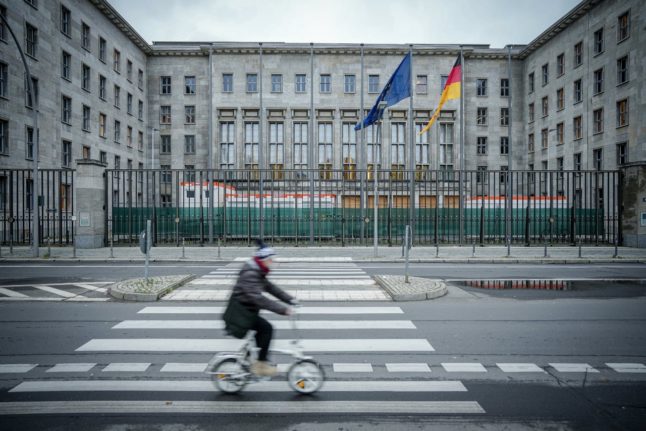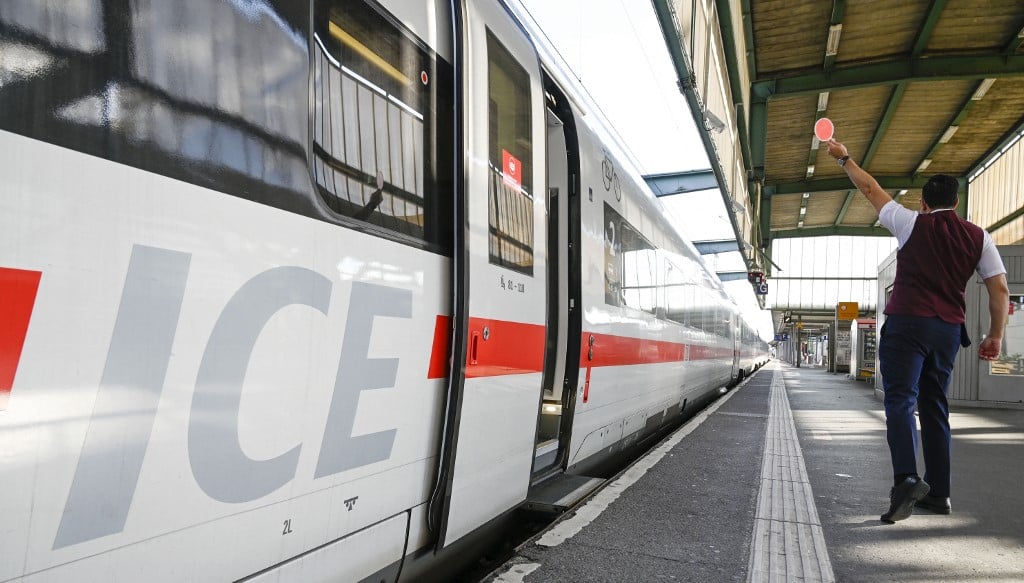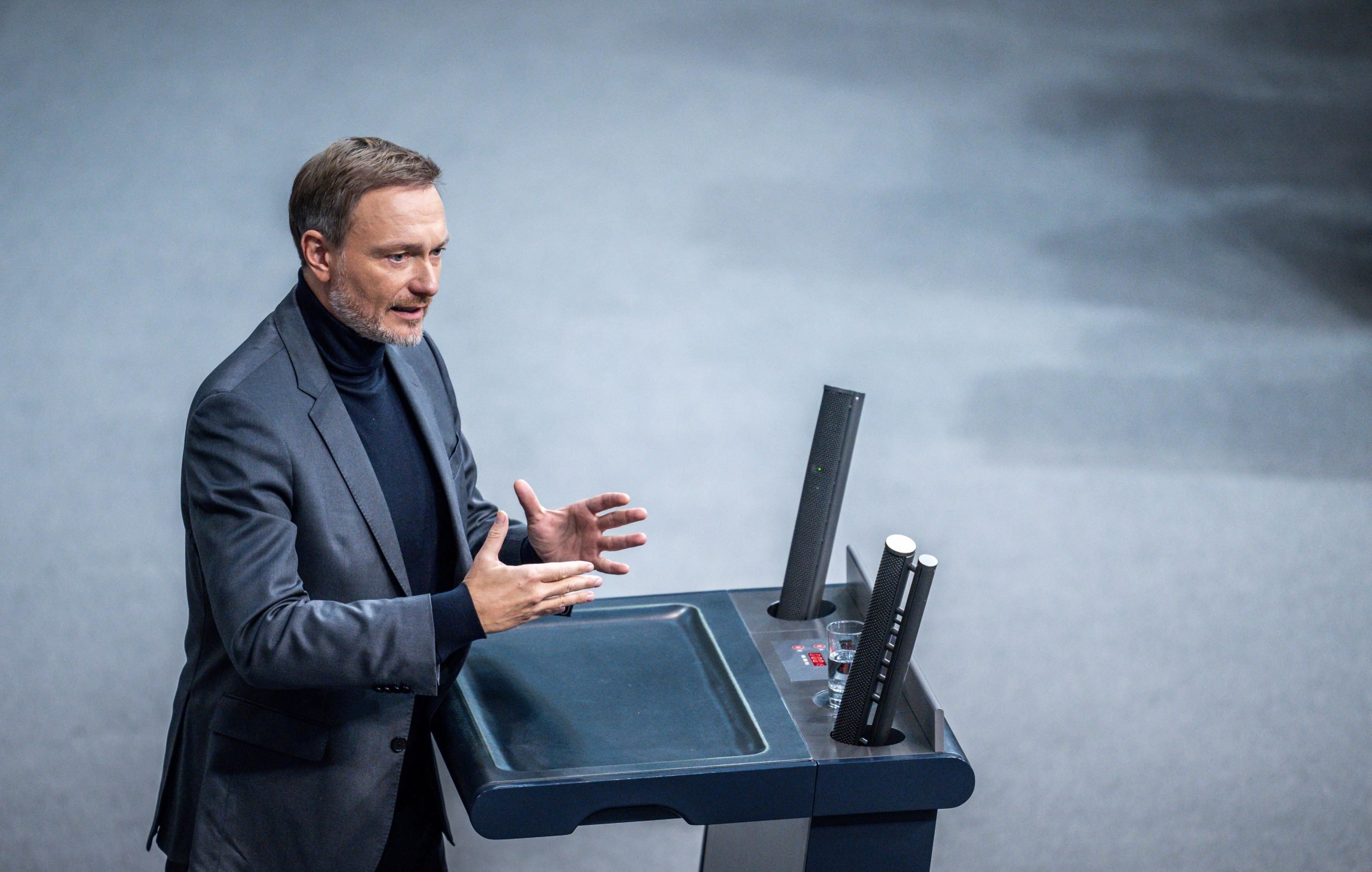Shortly after 9am last Thursday, Finance Minister Olaf Scholz learned that a team of prosecutors was standing outside the gate to the Nazi-era Finance Ministry building.
The investigators had travelled from Osnabrück in Lower Saxony accompanied by four policemen. Armed with a search warrant, they told the minister that they would need to look through rooms and documents in the building as part of an ongoing inquiry.
READ ALSO: German and finance ministries searched in fraud investigations
The focus of the investigation was the Financial Intelligence Unit (FUI), a team tasked with assessing tip offs from banks about money laundering and passing them on to prosecutors. The FUI is suspected of obstructing an investigation into a multi-million-euro money laundering operation, possibly involving terror funding in Africa.
Within a couple of hours the national news bulletins were all leading on one story: “Prosecutors raid the Finance Ministry.”
With just two weeks to go before the election, these raids had the potential to act as political dynamite.
The Social Democratic Party (SPD), for whom Scholz is the Chancellor candidate, has sailed into the lead in national polling, pulling past the conservative CDU and the Greens.
And it is clear why. For many Germans, the Finance Minister’s dullness and lack of emotion are a sign of competence and rigour; the CDU’s affable candidate Armin Laschet is seen as lightweight and unserious by comparison; Annalena Baerbock of the Greens lacks experience.
But Scholz has a chink in his armour: past failures to act decisively against financial malpractice have left the impression he is too lax on bankers.
During the Cum-Ex scandals he met with the head of a Hamburg bank that had defrauded the taxpayer of millions just weeks before the tax office wrongly let the bank keep the cash. And then Wirecard got away with the largest fraud in German history right under the nose of a financial authority Scholz was responsible for.
So, a new investigation into financial wrongdoing, this time leading right up to his door step, seemed to fit a pattern.
But perhaps it fitted that pattern just a little too conveniently. Because, when you look a little closer things become a little murkier.
Osnabrück’s chief prosecutor is a member of the CDU. And the prosecutor’s office is under the authority of Lower Saxony’s justice minister, Barbara Havliza, herself a CDU politician who was formerly presiding judge at the Osnabrück city court – the same court that granted the search warrant.
READ ALSO: How to explain German vaccine hesitancy?
The Social Democrats are sure that the raid was politically motivated. They point to the very different wording of the arrest warrant, which merely stated that they wanted to “identify relevant staff” at the Financial Intelligence Unit (FIU) and gather information on their communications.
But the prosecutor’s press release – meant for public consumption – implied a more politically sensitive element to the investigation. The object was to find out “the extent to which the leadership of the ministry… …were involved in decisions of the FIU,” the statement read. In other words, did Scholz or his closest advisors do anything untoward?
Legal experts have expressed surprise that the Osnabrück prosecutors applied for a search warrant before even alerting the Finance Ministry. Normal procedure is to first write to request the relevant files. As one legal professor put it to der Spiegel: “The [application for a] search warrant can only be read as a clear sign of mistrust towards the responsible people at the ministry.”
Osnabrück’s prosecutors have insisted that political considerations “played no role”. Instead they suggested that they had reason to believe that bureaucrats at the ministry wouldn’t have given them everything that they wanted had they requested the documents in writing.
What reason could the prosecutors have had to suspect that Scholz’s staff were hiding something? After all, the FUI isn’t even fully under the control of the Finance Ministry, which doesn’t have Fachaufsicht over its activities i.e. it doesn’t have the power to look into the its individual investigations.
Scholz has himself implied that the prosecutors behaved improperly, asking why they didn’t submit their queries in writing.
Of course, the SPD’s reaction could be an attempt to redirect the public’s attention. But there are real issues surrounding the impartiality of Germany’s prosecutors.
Back in 2019, the European Court of Justice banned German prosecutors from issuing EU-wide arrest warrants, saying that they were not sufficiently independent from executive influence.
A quirk of German law that dates at least to the days of the Weimar Republic allows government ministers to intervene in prosecutors’ work. This blurring of the separation of powers has been described by Süddeutsche Zeitung editor Heribert Prantl as “the original sin of the Bundesrepublik.”
Still, political plots seem a bit too lurid for the dull world of German politics. Who really believes that the gaffe-prone Laschet was pulling the strings behind the scenes in a high-risk bid to defame his opponent?
But the CDU leader – under intense pressure to turn around his party’s grim fortunes – couldn’t resist the chance to attack his rival during a prime time TV duel on Sunday evening.
Looking deeply concerned by events at the Finance Ministry, he lambasted Scholz for a failure of management which had made the prosecutor’s raids inevitable. He then added for good measure that his rival was “acting like populists in other countries” by questioning the prosecutor’s motives.
There was something contrived about Laschet’s attack – especially his insistence that he would move the FIU away from the Finance Ministry to the Bundeskriminalamt (his political godfather Wolfgang Schäuble moved the unit in the opposite direction back in 2017). It smacked of a last-ditch attempt to make something, anything stick.
SEE ALSO: What’s behind the German fascination with foraging for wild mushrooms?
But he got under his opponent’s skin. Visibly riled, Scholz insisted that Laschet retract his “deliberately misleading” accusations.
The German public didn’t seem to buy what Laschet was selling, though. Snap polling after the TV duel once again showed Scholz to be viewed as more competent and trustworthy.
The affair has echoes of the ‘October surprise’ that knocked Hillary Clinton off her stride in the US Presidential election in 2016.
On that occasion, the FBI made a much-criticized decision to announce that it was investigating emails sent by Clinton during her time as Secretary of State. The investigation drew a blank and Clinton would later blame the FBI for her defeat to Donald Trump.
This is unlikely to be Scholz’s Clinton moment. Nonetheless, it could add a surprise element to an election run in the all seemed to be going Scholz’s way.
Jörg Luyken is the creator of The German Review. You can sign up to his bi-weekly newsletter on German current affairs here.







 Please whitelist us to continue reading.
Please whitelist us to continue reading.
Member comments